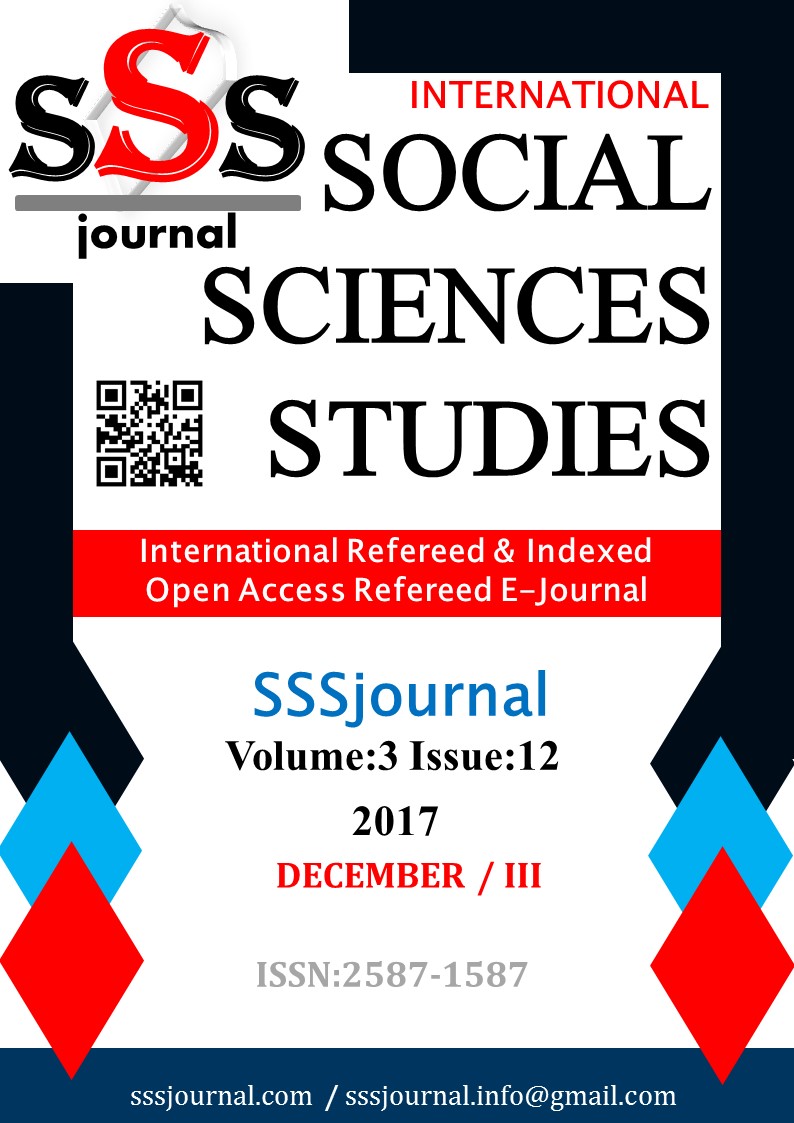Author :
Abstract
Turizm literatüründe kullanılan bazı yabancı kelimelerin ve deyimlerin Türkçe'de karşılıklarını bulmak oldukça zordur ve mana yönünden eksik kalır. Bu kelimelerden biri de "Destination" dır. Turizmde "Destinasyon" incelendiğinde, tüm turistik faaliyetlerin yanı sıra ziyaret edilecek bölgedeki cazibe merkezlerini de içerir. Bir turizm bölgesi, kendi sorumlulukları ile tüketicilere (turist) ev sahipliği yapmaktan onur duyan kamu ve özel sektörden oluşan birçok paydaş ile karmaşık bir yapıya sahiptir. Destinasyon yönetimi, coğrafi bir bölgede, bir köyde, kasabada veya bir ilde çalışmalar yapan ve destinasyonun daha iyi yönetilmesi için ayrı varlıkları birleştirmek için stratejik bir yaklaşım benimseyen ulusal ve koordineli bir yönetimdir. Ayrıca, güçlü bir marka imajı oluşturmak için destinasyonu tanıtmaları gerekmektedir. Ancak, kamu ve sivil toplum örgütlerinin turizm ürünleri üzerinde doğrudan etki ve kontrolleri yoktur. Öncelikle seyahat acentaları ve tur operatörlerinin ana görevleri destinasyona turist getirmektir. Bu çalışmada; Destinasyonda paydaşların rol ve görevleri, turist çeken unsurlar, talebi oluşturan bölgeyi etkileyen olumlu ve olumsuz nedenler, DMC, tur operatörleri ve seyahat acentalarının görevleri, Kültürel mirasın turizm ile ilişkisi ve önemi gibi konular incelenmiştir.
Keywords
Abstract
In tourism literature, it is very difficult to find equivalent word for some foreign words and phrases corresponding in Turkish and are lacking in meaning. One of these words is "The Destination". When we study “The Destination” in tourism, it includes all tourist activities as well as the attractions of the area to be visited. A tourism destination possesses a complex structure composed of many stakeholders, public and private sectors who have the honors of hosting consumers (tourists) with their own responsibilities. Destination management is a national and coordinated management that conducts studies on a geographical region, a village, a borough or a city and takes a strategic approach to linking separate entities for the better management of the destination. Furthermore, they need to promote their destination in order to build a strong brand image. However, public and civil society organizations have no direct influence and control over marketing products. It is primarily duty of travel agencies and tour operators that bring the tourists to the destination. In this study; The roles and duties of the stakeholders in the destination, the factors attracting the tourists, the positive and negative causes affecting the requesting region, the duties of the DMC, tour operators and travel agencies, the relation of cultural heritage to tourism and the importance are examined.
Keywords
- Önemli arazi kaynakları, mineraller, fosil yakıtlar, verimli topraklar, ormanlar, sulak alanlar ve hayvanlarınyaşam alanları yeni tesislerin açılması ve yolların yapılmasıyla olumsuz etkilenmektedir. Otel, restoran,19 (Noussia, 2003,Commercialisation of Heritage: How to get the balance right, written by İdil Yilmaz, Lap Lambert Academic Publishing, 2011. 20 https://www.visitdubai.com/en/tourism-performance-report
- Havayolu, karayolu ve demiryolu ile ulaşım devamlı olarak artış göstermektedir. Dünya genelinde uluslararasıhavayolu ile taşınan yolcularının sayısı örneğin 1972'de 88 milyon, 1994 yılında 344 milyon iken, UluslararasıHava Taşımacılığı Birliği’ne (IATA) göre, 2011 yılında 2,8 milyara ve 2016 yılında ise 3,6 milyar yolcuya ulaşmıştır. 2011 ile 2016 yılları arasındaki 5 yıllık dönemde fark 800 milyon daha fazladır.22
- Örneğin, İspanya 2016 yılında 75 milyonun üzerinde turist çekmiştir. Mallorca'da aşırı turist yoğunluğupahalılığa ve çevre kirliliğine sebep olmaktadır. Backpack traveller adı verilen sırt çantalı turistlerin arzuettikleri yerlerde uyumaları ve yerleri kirletmeleri yerel insanları rahatsız etmektedir. Mallorca’dan başkaİspanya’da Barselona şehri halkı da turistlerin olumsuz davranışlarından dolayı rahatsız olmakta ve bu konudayerel halk zaman zaman şehrin merkezi olan La Rambla’da yürüyüşler yapmaktadır. 2016 yılında 1,6 milyonsakini olan Barselona’ya yaklaşık 32 milyon turist gelmiştir. Bunların yaklaşık yarısı Avrupa Topluluğuülkelerinden gelen günübirlik ziyaretçilerdir. 2017 Ocak ayında Barselona’da yeni bir yasa yürürlüğe girmiştir. Bu yasa ile 25 sene sonra turizm konusunda yeni düzenlemeler yapılmıştır.23
- 23 The Guardian, Stephen Burgen in Barcelona, Friday 27 January 2017 07.00 GMT.)seçilmesi ve ziyaretçilerin memnun olarak ülke ve evlerine dönmeleri esaslı ve dikkatli planlama ve yönetimile mümkündür. Bu bakımdan turizm çevreye, sosyal ve kültürel yapıya entegre olamazsa ülke ve bölgelerdebüyüme ve gelişmede sürdürülebilirlik yakalanamaz. Burada DMC’lerin, seyahat acentaları ve turoperatörlerine çok büyük görev düşmektedir. Yukarıda sözü edilen mikro yönden konular üzerinde hassasiyetle durulmalıdır.
- Bull, A. (1995), The Economics of Travel and Tourism, Second Edition, Melbourne: PitmanBurkart, A.J. & Medlik, S. (1974). Tourism – Past, Present, and Future. 2nd edition 1981,
- Cho, B. H. (2000), “Destination” in J. Jafari (Ed.), Encyclopaedia of Tourism, Routledge, London and New York
- Commercialisation of Heritage: How to get the balance right, written by İdil Yilmaz, Lap Lambert Academic Publishing, 2011.
- Cooper, C.P., Fletcher, J., Gilbert, D. Wanhill, S. and Shepherd, R. (1998), Tourism Principles and Practice, Second Edition, London: Longman
- Hawkins,cited in Kreag, 2001, s.17, Commercialisation of Heritage: How to get the balance right , written by İdil Yilmaz, Lap Lambert Academic Publishing, 2011)
- Kreag, 2001,Commercialisation of Heritage: How to get the balance right, written by İdil Yilmaz, Lap Lambert Academic Publishing, 2011.
- Lanfant, 1995, s 71, Commercialisation of Heritage: How to get the balance right, written by İdil Yilmaz, LapNorman. P.& Smith, L. (1995). The theory of planned behavior and exercise: An investigation into the role ofprior behavior, behavioral intention, and attitude variability. European Journal of Social Psychology, 12, 403- 415.
- Noussia, 2003,Commercialisation of Heritage: How to get the balance right, written by İdil Yilmaz, Lap Lambert Academic Publishing, 2011.
- Page & Connell, Tourism A Modern Synthesis, South Western Cengage Learning, Third Edition, UK, 2009, p.51 / p.105
- The Guardian, Stephen Burgen in Barcelona, Friday 27 January 2017 07.00 GMT.)
- Theuma 2004, s.292, Ritchie & Crouch 2003, s 115, Commercialisation of Heritage: How to get the balance right, written by İdil Yilmaz, Lap Lambert Academic Publishing, 2011
- UNWTO, A Practical Guide to Tourism Destination Management, 2007 www.iata.org/pressroom





